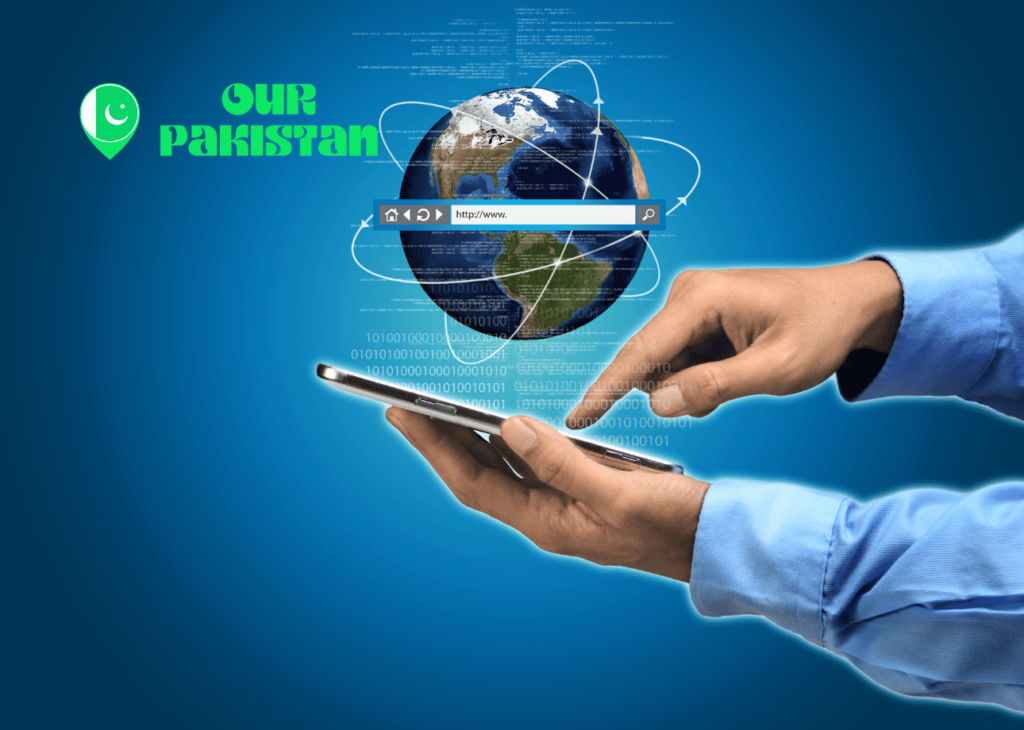In today’s modern world, internet connectivity has become a fundamental aspect of our lives. It has transformed the way we communicate, work, access information, and engage in various activities. Digital inclusion, which refers to providing equal access and opportunities to individuals and communities, has a profound impact on societal development and growth.
Current State of Internet Connectivity
Internet penetration in Pakistan has been steadily increasing over the years. As of recent statistics, the country has witnessed a significant rise in the number of internet users. This growth can be attributed to various factors, including the government’s efforts to expand digital infrastructure and the proliferation of affordable smartphones.
Urban-Rural Divide in Internet Access
Despite the progress made in internet penetration, a significant urban-rural divide still exists in Pakistan. While urban areas enjoy relatively better internet access, rural communities face numerous challenges in accessing and utilizing digital resources. This digital divide poses a barrier to equitable development and economic opportunities for individuals in rural areas.

Internet Infrastructure and Technology
Pakistan has been investing in improving its internet infrastructure to provide better connectivity across the country. Undersea fiber optic cables, such as the Pakistan East Africa Connecting Europe (PEACE) Cable, have been instrumental in enhancing international connectivity. Additionally, the development of Internet exchange points and data centers has contributed to a more robust digital ecosystem.
Role of Government and Private Sector in Expanding Connectivity
Both the government and the private sector play a crucial role in expanding internet connectivity in Pakistan. The government has implemented various policies and initiatives aimed at enhancing digital inclusion, such as the Universal Service Fund (USF) and the National Digital Pakistan Policy. On the other hand, private sector investments have led to the development of advanced telecommunications infrastructure, facilitating wider access to the Internet.
Read More About
Technology Trends In Pakistan
Startups In Pakistan
Technology Trends In Pakistan
Challenges to Internet Connectivity
Despite the progress made, several factors hinder internet access in certain areas of Pakistan. Geographic challenges, such as difficult terrain and inadequate network coverage, limit connectivity options in remote regions. Additionally, unstable power supply and insufficient investment in telecommunications infrastructure in some areas pose significant obstacles to reliable internet access.
Affordability and Accessibility Issues for Marginalized Communities
Affordability and accessibility remain major challenges for marginalized communities in Pakistan. The cost of internet services and devices can prohibit many individuals from gaining internet access. Moreover, a lack of digital literacy and limited awareness about the benefits of the internet further exacerbate the divide, particularly for vulnerable populations.
Government Initiatives for Digital Inclusion
Recognizing the importance of digital inclusion, the government of Pakistan has introduced various programs and policies to bridge the digital divide. Initiatives such as the Ehsaas Emergency Cash Program, aimed at providing financial assistance through digital means, and the Skill for All program, aimed at increasing digital skills, have contributed to promoting digital inclusion and empowerment.

Efforts to Bridge the Digital Divide and Improve Internet Accessibility
To bridge the digital divide and improve internet accessibility, the government has implemented measures to extend the reach of digital infrastructure to underserved areas. This includes the establishment of telecommunication towers in remote regions, subsidized connectivity solutions for low-income communities, and initiatives to train and empower local entrepreneurs in setting up internet access points.
Role of Mobile Internet
Mobile technology has played a significant role in driving internet penetration in Pakistan. With the increasing affordability of smartphones and the availability of mobile data packages, a large portion of the population now accesses the internet primarily through their mobile devices. This shift has enabled greater accessibility to digital services, social media, and online platforms.
Mobile Internet Usage Trends and Its Contribution to Digital Inclusion
The reliance on mobile internet has brought about transformative changes, particularly in bridging the digital divide. Mobile internet usage trends indicate that individuals from different socio-economic backgrounds, including those in rural areas, are accessing digital content, educational resources, and e-commerce platforms via their smartphones. This increased access contributes to overall digital inclusion and empowers individuals to participate in the digital economy.
E-Governance and Digital Services
The adoption of e-governance solutions in Pakistan has enhanced the efficiency and accessibility of public services. Government departments have embraced digital platforms to streamline administrative processes, reduce paperwork, and improve service delivery. These digital initiatives have not only increased convenience for citizens but have also reduced corruption and promoted transparency.
Digital Initiatives for Education, Healthcare, and Financial Inclusion
Digital initiatives in sectors such as education, healthcare, and financial inclusion have also contributed to digital inclusion. Online education platforms, telemedicine services, and digital banking solutions have improved access to quality education, healthcare assistance, and financial services, particularly for individuals residing in remote areas. These initiatives have the potential to uplift marginalized communities and foster inclusive growth.

Internet and Economic Growth
Internet connectivity plays a vital role in driving economic growth and fostering innovation in Pakistan. It enables businesses to reach a wider audience, facilitates e-commerce transactions, and encourages entrepreneurship. Moreover, the internet acts as a catalyst for innovation, allowing individuals and organizations to develop new technologies, products, and services that contribute to economic advancement.
Internet-Based Businesses and Their Contribution to the Economy
Internet-based businesses have emerged as key drivers of the Pakistani economy. Startups and digital enterprises leverage the power of the internet to create employment opportunities, attract investment, and generate revenue. These businesses have not only contributed to economic growth but have also played a pivotal role in positioning Pakistan as a hub for technological innovation and entrepreneurship.
Digital Literacy and Skills Development
Digital literacy plays a fundamental role in promoting digital inclusion. It empowers individuals with the knowledge and skills necessary to navigate the digital landscape, access online resources, and engage with digital platforms securely. Enhancing digital literacy is essential to ensure that all individuals, regardless of their background, can effectively utilize the internet and benefit from the opportunities it offers.
Initiatives to Enhance Digital Skills and Education for All
To enhance digital skills and education, various initiatives have been undertaken in Pakistan. Public-private partnerships, vocational training programs, and community centers have been established to provide training on digital tools, online safety, and entrepreneurship. These initiatives aim to equip individuals with the necessary skills and empower them to actively participate in the digital economy.
Digital Divide in Education
Access to the Internet has a significant impact on education in Pakistan. It opens up a world of knowledge and educational resources for students, enabling them to pursue online courses, research, and collaborate with peers globally. However, the digital divide in education remains a challenge, particularly for students in remote areas who lack internet access and face barriers to online learning opportunities.
Addressing Challenges in Remote Learning and Online Education
Efforts are being made to address the challenges of remote learning and online education in Pakistan. This includes initiatives to provide internet connectivity to schools in underserved areas, the development of digital learning platforms tailored to local needs, and the deployment of mobile education solutions. Bridging the digital divide in education is crucial to ensure equal opportunities and quality education for all students.
Internet Connectivity in Rural Areas
Providing internet access to rural communities in Pakistan poses both challenges and opportunities. The difficult terrain, limited infrastructure, and low population density pose challenges in extending connectivity. However, community-led initiatives, such as the establishment of rural internet cafes and community networks, have shown promise in bridging the gap and providing internet access to remote areas.
Success Stories of Community-Led Initiatives for Digital Inclusion
Several success stories of community-led initiatives for digital inclusion have emerged in rural areas of Pakistan. Through collaboration and grassroots efforts, local communities have set up internet access points, organized training programs, and promoted digital literacy. These initiatives have not only empowered individuals but have also fostered community development, job creation, and entrepreneurship in previously underserved areas.

Future Prospects and Challenges
Pakistan has immense potential for technological advancements and further internet growth. As technology continues to evolve, the deployment of emerging technologies such as 5G, the Internet of Things (IoT), and artificial intelligence (AI) holds the promise of transforming various sectors and enhancing Internet connectivity. Continued investment in digital infrastructure and innovation can pave the way for a more connected and inclusive Pakistan.
Addressing Security, Privacy, and Cyber Threats in the Digital Age
While the digital age presents numerous opportunities, it also comes with its fair share of challenges. Ensuring security, privacy, and safeguarding against cyber threats is paramount in the digital era. Implementing robust cybersecurity frameworks, raising awareness about online safety, and promoting responsible online behavior is crucial to protect individuals, businesses, and the overall digital ecosystem.
Conclusion
Equitable internet connectivity is of utmost importance for societal development and growth in Pakistan. Bridging the digital divide and achieving digital inclusion requires collective responsibility from the government, private sector, and civil society. With concerted efforts, investments in digital infrastructure, and initiatives to enhance digital literacy, Pakistan can create an inclusive digital society that empowers all its citizens and drives socio-economic progress.